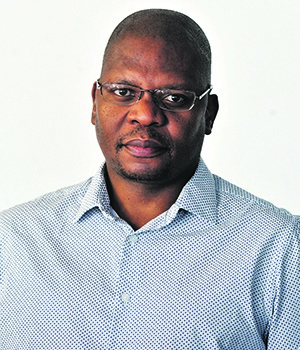
Writing in 1911, a year before the formation of the ANC, Pixley ka Isaka Seme called for Africans to put their differences aside and forge a native union.
He wrote: “The demon of racialism, the aberrations of the Xosa-Fingo feud, the animosity that exists between the Zulus and the Tongaas, between the Basutos and every other native must be buried and forgotten; it has shed among us sufficient blood! We are one people. These divisions, these jealousies, are the cause of all our woes and of all our backwardness and ignorance today.”
Over the next few decades, much work went into eliminating cultural differences.
The ANC matured in leadership and changed hands between different cultural groups, with hardly anyone caring about what language people at the top spoke. What mattered was the quality and calibre of those who rose.
It was only during the exile years that tribalism began to rear its ugly head, with people grouping themselves along cultural lines.
But even then, it had more to do with geographic origin and language familiarity than cultural identification. Such tendencies were, however, quickly crushed by an ANC leadership that was conscious of the organisation’s role as the glue holding the South African struggle together.
In the internal resistance, tribalism was frowned upon even more. Having rendered the Bantustan system null and void, the leadership was proactive in forging a sense that the democratic movement was as broad and national in character as possible.
To the arrogant South African mind, tribalism and cultural conflict belonged elsewhere. Such backward tendencies would never take root here, we believed.
Until Vuwani, that is. The tensions between Venda and Tsonga speakers were apparent in Vuwani, Limpopo, and came as a shock.
It should not have. Just like race, the management of cultural differences is one of the things we papered over during our journey to normalcy. Because we had a united front against apartheid, we thought things would happen naturally. But we should have detected the signs of danger long ago.
When the nine provinces were created and the imaginary borders of the Bantustans were removed, cultural sentiments began to emerge.
In Limpopo, in particular, there was wrangling over the provincial capital, even though it should have been obvious to all that the most functional location was what used to be called Pietersburg.
When the administration was being set up, there were fights about which cultural group was dominating top positions.
Those who occupied these positions would then be accused of loading their staff with people from their own cultural group.
The allocation of budgets and the pattern of infrastructure development became a hot potato. This fighting even permeated the structures of the ANC, where voting often happened along cultural lines.
Limpopo was not the only place that experienced this. It was just that the problem was accentuated by the fact that the province was a merger between several Bantustans.
In other provinces, such as Mpumalanga, which had smaller but equally fraught mergers, the fighting occurred on a lesser scale. At the national level, there were also whispers about how ministers favoured hiring their own kin.
The problem started to escalate in the mid-2000s when some Jacob Zuma supporters resorted to cultural mobilisation to drum up support for their man. This flew in the face of broad national support for him among those who were unhappy with Thabo Mbeki.
Taking a cue from the “100% Zulu” T-shirts worn by Zuma supporters, members of other cultural groups began generating their own “100%” paraphernalia. Flags of the erstwhile Bantustans were displayed with pride on windscreens and boots of cars. Clearly, South Africa was going backwards.
With the benefit of hindsight, we should have been prepared for the scenes that played out in Vuwani. Many of us will ask where the political intelligence of the country’s biggest political party was during the build-up to the cultural conflict.
We will ask why the country’s intelligence services did not pick up that something of this scale was brewing. We will ask why ward councillors and the much-vaunted constituency offices of political parties didn’t see it coming.
But it will be too easy to point fingers. Vuwani is the collective failure of a nation in denial about the problems we harbour. We would rather boast about our diversity than do something to foster and entrench it.
Rather than pin blame on the people who should have picked up and pre-empted the conflagration, South Africans should see it as a sign that all is not hunky-dory in the good republic; that, in some quarters, serious prejudices exist and need to be dealt with.
The next outbreak may not be in some rural town, far from where it can affect our security and livelihood, it could happen in our metropoles, where the effect will be massive and play out in front of the world’s eyes. The demon is not dead.




 Publications
Publications
 Partners
Partners








